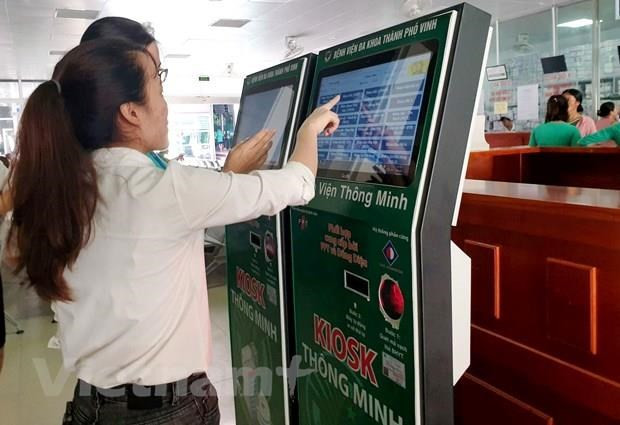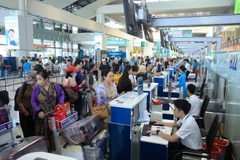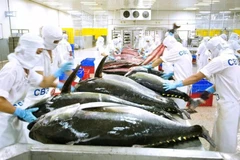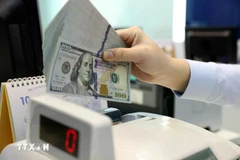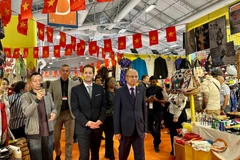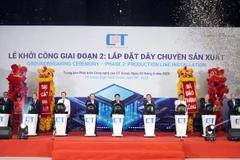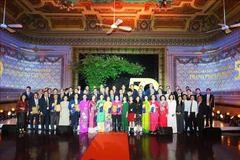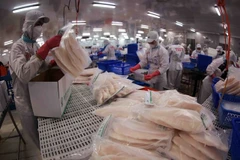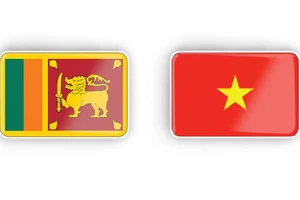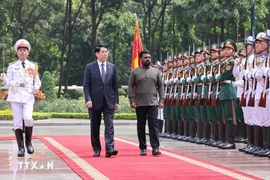Hanoi (VNA) – Many schools, hospitals and public service providers have installed QR code readers, enabling their clients to pay their bills via mobile phones and bank cards.
The Governor of the State Bank of Vietnam (SBV) has issued a document asking the central bank’s branches in cities and provinces to push ahead with non-cash payment for public services.
Accordingly, branches at the provincial level are asked to provide consultations for municipal and provincial People’s Committees, and closely coordinate with local departments and agencies to effectively implement solutions aiming to intensify cashless payment for public services in line with the Government’s Decision No. 241 and the SBV Governor’s Decision No. 923, with priority given to the education and healthcare sectors.
They will also propose the People’s Committees to issue documents instructing local public service providers such as medical centres, educational institutions, social insurance agencies, water and electricity companies, and administrative agencies to build IT systems and software connected with those of banks and payment intermediary service providers to facilitate non-cash payment for public services.
Schools, hospitals and public service providers should announce their bank accounts, install QR code readers and establish IT systems that provide information about fees and client codes, the document said.
The Governor also asked the SBV branches in cities and provinces to instruct local credit institutions to join hands with local departments, agencies and public service providers to apply cashless methods, and launch promotion programmes to encourage this type of payment.
Customers should be well informed about procedures of cashless payment and measures to ensure safety during the transactions.
The Governor also underlined the need for these banks to well perform the settlement of customers’ complaints, saying they must go to the root causes of the shortcomings and partner with relevant agencies in responding to customers.
At the same time, the banks are urged to step up coordination with media and press agencies, credit institutions and payment intermediary service providers in building communications programmes in order to promote non-cash payment for public services, firstly focusing on the healthcare and education sectors.
Additionally, it is necessary to get update on legal regulations, mechanisms, policies and documents of the SBV, regarding payment activities, and report difficulties and obstacles to the Payment Department of the central bank for settlement, the document said.
Prime Minister Nguyen Xuan Phuc late last year approved a scheme to intensify payment for public services via banks, including tax, electricity, water, hospital and education fees.
Specifically, by 2020, 80 percent of tax payment transactions in central-level and provincial-level cities are hoped to be implemented via banks, while all State Treasuries will have cashless payment devices.
The scheme also targets non-cash payments being accepted by 70 percent of electricity companies, 70 percent of water companies, 100 percent of universities and colleges and 50 percent of hospitals in major cities.
The country will focus on developing new and modern payment methods, especially those suitable for rural areas and people without bank accounts.
Besides, it will also develop new multi-functional and multi-purpose bank cards that allow different forms of payments such as internet banking and near-field communication payments.
More efforts will be made to ensure security and safety during transactions to gain consumer confidence, and authenticity measures intensified to avoid fraud, according to the decision.
The Payment Department reported that 96.2 million cards have been issued nationwide, up 210 percent from early 2011.
There are some 60 organisations providing internet banking payment services and 30 organisations providing mobile banking payment services.
The payment infrastructure has also been improved, evidenced by the rapid increase of ATMs and points-of-sale, by 47 percent and 300 percent, respectively./.
